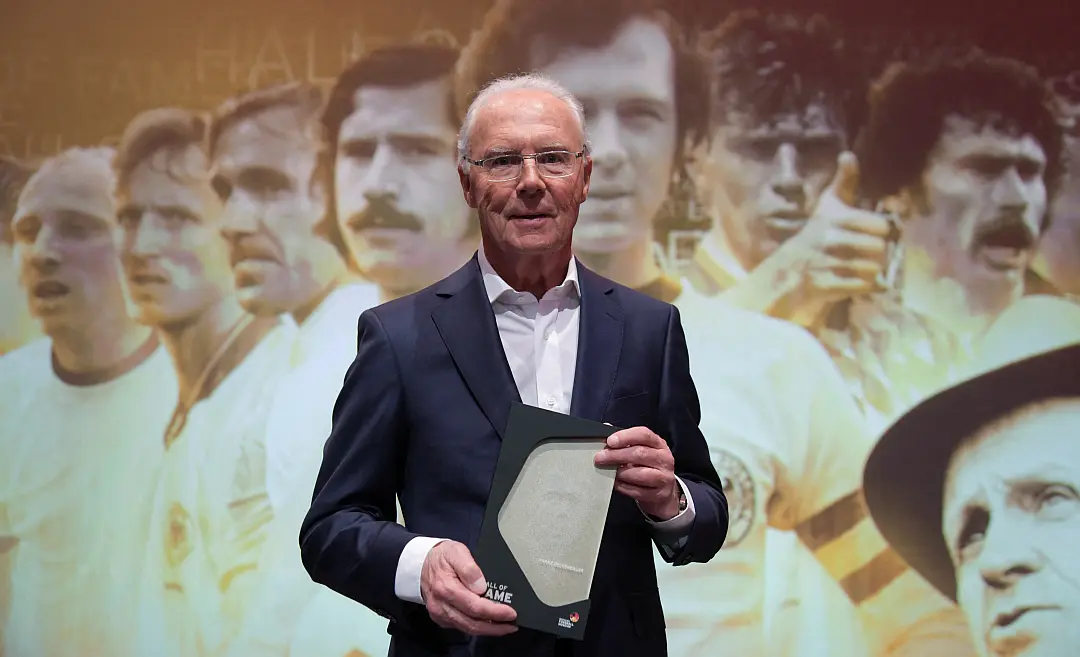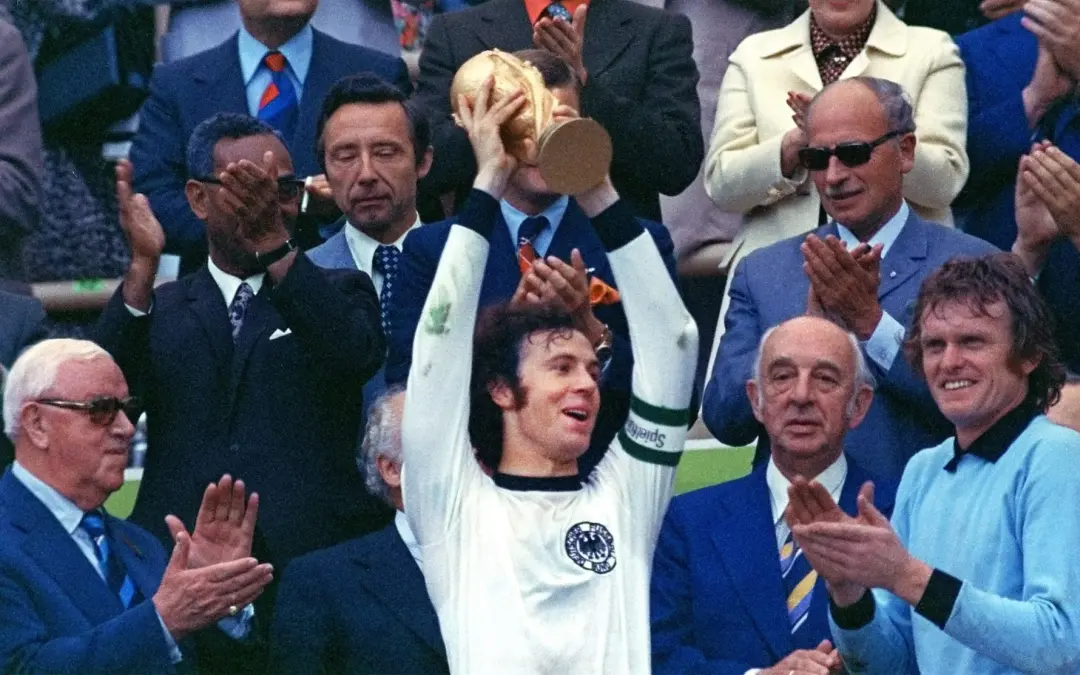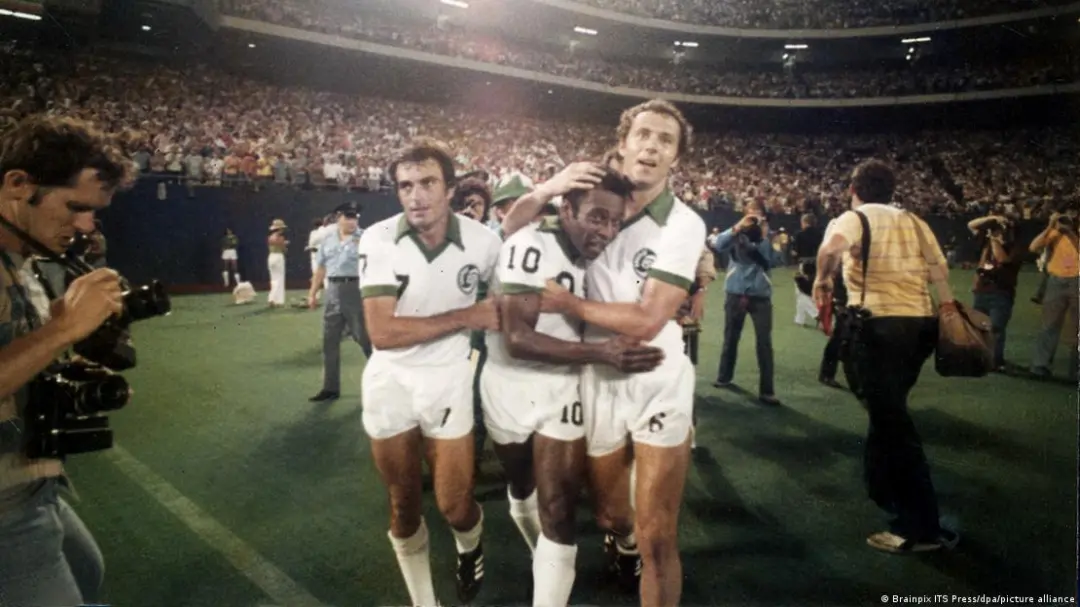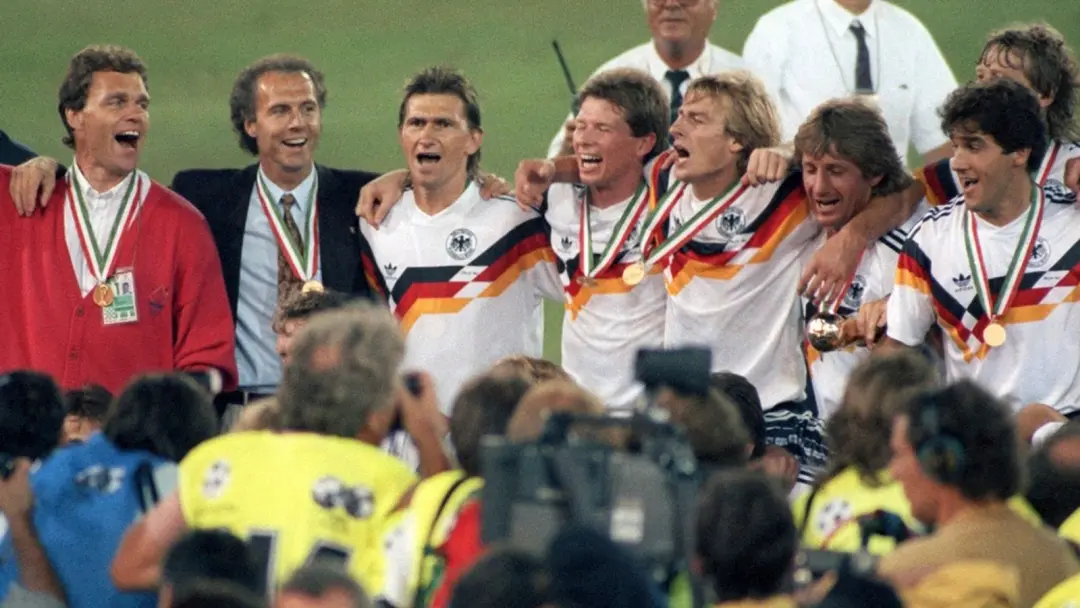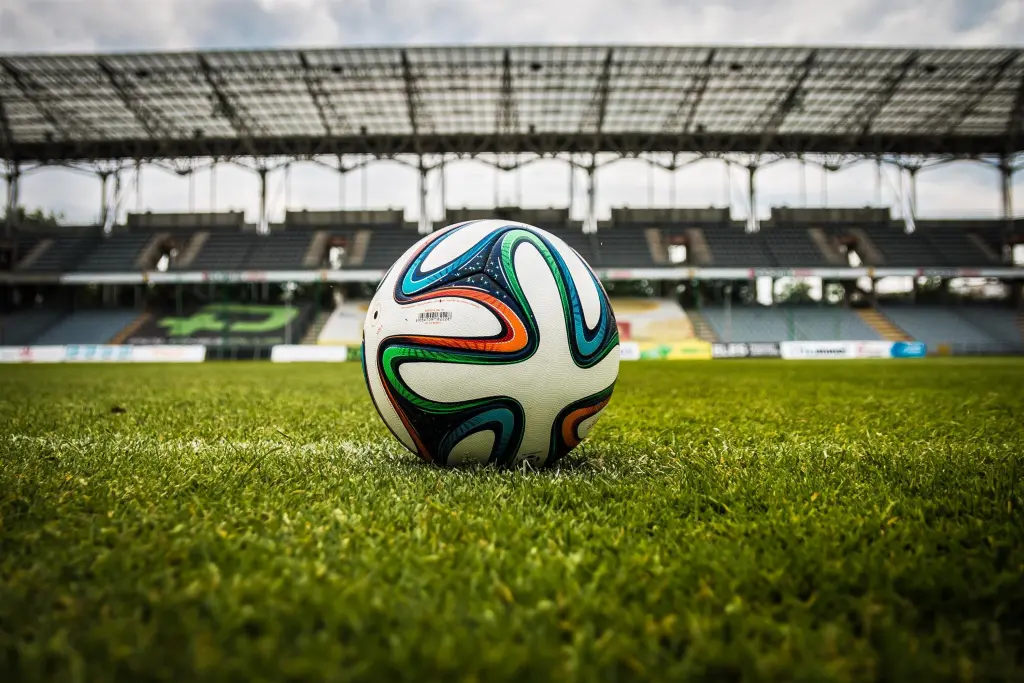Huddle In For “Der Kaiser” Franz Beckenbauer
In the hallowed pages of football history, few names resonate with the same timeless acclaim as Franz Beckenbauer. Known as “Der Kaiser,” Beckenbauer’s impact on the beautiful game is indelible. As we embark on this exploration of his legacy, let’s delve into the multifaceted journey of a football maestro who left an indomitable mark on the sport.
Franz Anton Beckenbauer believed in reincarnation. “Maybe I’ve been here once before, as a plant or something,” he told a Berlin newspaper in 1994. “I’ve not been able to transport myself back yet, but it’s something I’d like to do.” And what a journey he had in the one that ended on January 7, 2024, after his family informed the German press agency dpa he passed away peacefully on Sunday surrounded by his family. He was 78.
Early Life and Rise to Football Stardom
In the post-war ruins of Munich, on September 11, 1945, Franz Anton Beckenbauer emerged, destined for greatness. Beckenbauer’s football odyssey began at SC 1906 Munich, where his talent caught the eye of Bayern Munich at the tender age of 13. The boy wonder swiftly ascended through the ranks, making his first-team debut in 1964 and setting the stage for a footballing revolution.
As a young prodigy, Beckenbauer’s early years were marked by a profound connection with the game. His swift progression through Bayern Munich’s ranks hinted at a footballing genius in the making. At the age of 18, on June 6, 1964, Beckenbauer made his debut for Bayern’s first team against Stuttgarter Kickers, a game in which he also scored his first goal for the club as Bayern went on to win promotion to the Bundesliga. The trajectory was set, and Beckenbauer was on a path that would forever alter the landscape of German football.
Playing Career Highlights
Beckenbauer’s playing career was a symphony of triumphs. A maestro on the field, he orchestrated Bayern Munich’s ascent to Bundesliga and European Cup glory. The ‘libero’ playing style, a Beckenbauer innovation, became synonymous with elegance and strategic brilliance. Internationally, he steered West Germany to European Championship and World Cup victories, etching his name in football folklore.
The 1970s would be Beckenbauer’s most successful decade as he led Bayern to three consecutive Bundesliga titles in 1972, 1973, and 1974. The third was accompanied by the first of three consecutive European Cup wins – and a World Cup triumph on home turf as Beckenbauer captained West Germany to victory over the Netherlands.
Beckenbauer himself began as a winger but soon dropped back into central midfield or, most eye-catchingly, to the ‘libero’ sweeper role which he did more than anyone to make fashionable. His reading of the game was outstanding and, naturally, he soon became captain.
NASL Stint and Global Influence
As the ’70s unfolded, Beckenbauer’s influence transcended borders. His sojourn in the North American Soccer League (NASL), donning the New York Cosmos colors alongside the legendary Pele, showcased a footballing philosophy marked by intelligence rather than sheer strength. Beckenbauer became a global ambassador for the sport, leaving an indelible impact on the world stage.
In 1977, having retired from international football with a then-record 104 caps, Beckenbauer took up an offer to play alongside Pele at the New York Cosmos in the fledgling North American Soccer League. Pele himself had a high opinion of the stylish Beckenbauer. The Brazilian said: “As a player, he was marked out by intelligence rather than strength. He was more Brazilian than German as a footballer.”
He also had a short – title-winning – spell with Hamburg before retiring in 1983.
Managerial Achievements
Beckenbauer seamlessly transitioned from player to coach, achieving what few could fathom—World Cup success on both fronts. Leading West Germany to triumph in 1990, he joined an elite club of individuals who conquered the pinnacle of football both as a player and a coach. His managerial acumen wasn’t confined to the international stage; domestic triumphs with Bayern Munich and Marseille cemented his status as a coaching luminary.
After stepping down from coaching the national side, he had brief stints in club management, notably at Marseille and Bayern Munich. His first, at Marseille, lasted a matter of months. The French club initially appointed him as sporting director early in the 1990-91 season, but manager Gerard Gili felt undermined and quit. Beckenbauer took full control but, even though he kept them top of Ligue 1, some poor results quickly saw him sent back upstairs, where he remained as Marseille won the title and reached the European Cup final that season.
He later had a stop-gap spell in charge back at Bayern in the second half of 1993-94, seeing them to Bundesliga success before becoming club president.
Controversies and Challenges
Even legends aren’t immune to the shadows that sometimes loom over success. Beckenbauer’s involvement in the 2006 World Cup bid came under scrutiny, sparking investigations into alleged corruption. The football maestro vehemently denied any wrongdoing, yet these controversies added layers to his legacy, underscoring the complexities that often accompany greatness.
Beckenbauer’s first marriage to Brigitte, which ended after 24 years in 1990, produced two children, Stephan and Michael. Stephan, who also became a professional footballer, died in 2015 from a brain tumour. Beckenbauer had another child, Thomas, during his second marriage, to Sybille, which lasted 14 years. Beckenbauer had two children with Heidi, Francesca and Noel, before they were married.
It was around this time Beckenbauer also began to suffer from heart problems. He had surgery in 2016 and 2017.
More Soccer Content on Huddlecourt
Click here to read more and discover why Lionel Messi is taking the MLS world by storm. Let the excitement begin!
Personal Life and Legacy
Beyond the stadiums and accolades, Beckenbauer’s personal life was a tapestry of joy and sorrow. Family triumphs and tragedies wove through his journey, and health challenges marked the later chapters. Yet, his legacy endured, a testament to the enduring impact of a football maestro on and off the pitch. Today, as we reflect on Franz Beckenbauer’s contributions, we honor not just the player and coach but the man behind the legend.
Franz Beckenbauer was one the first players to play in the USA. Giorgio Chinaglia (left) with Pele (center) and Franz Beckenbauer for the New York Cosmos. Image: Brainpix ITS Press/dpa/picture alliance
He was also famed for carving out his own role as a sweeper – now often known as a “Libero” – sitting slightly behind his team’s defensive line and sweeping up any man or ball that broke through.
Summarizing
In concluding our exploration of Franz Beckenbauer’s legacy, we find ourselves standing in awe of a football maestro who transcended the boundaries of the sport. From the youthful dreams of a Munich lad to the corridors of footballing immortality, Beckenbauer’s journey remains a source of inspiration and contemplation. As we navigate the pages of his life, we uncover not just the victories and controversies but the essence of a man who left an indelible imprint on the beautiful game.
This blog post is a tribute to a football maestro whose journey continues to resonate with enthusiasts worldwide. As we’ll remember the legacy of Franz Beckenbauer, we invite you to join the conversation, share your insights, and immerse yourself in the rich tapestry of one of football’s true luminaries.
Franz Beckenbauer dies at 78.
— DW Sports (@dw_sports) January 8, 2024
Rest in peace, Kaiser 🇩🇪 pic.twitter.com/KINvqMkVhL
Follow for more updates and highlights, as the beautiful game weaves its unpredictable story, where legends are born, and resilience shines brightest in the face of adversity.

